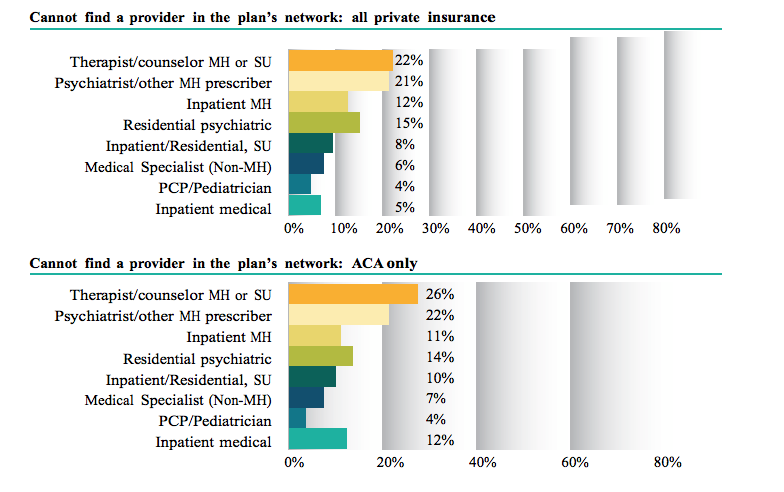By John C. Goodman
Originally posted on Forbes, October 2015
Anyone who has given two seconds worth of thought to it knows that school shootings are not occurring because we have a gun problem. They are occurring because we have a mental health problem. So what are we doing about that? Not much. Despite several mental health parity laws, government regulation is one reason why so little is being done. ObamaCare is probably making things worse.
If the market for medical care worked like a normal market, providers would specialize, advertise and actively recruit patients who have problems that need to be solved. But standing between the patients and the providers are third-party payers (employers, insurance companies and government). And in direct response to government regulations, these payers have no interest in solving the problems of the mentally ill.
As I wrote in Priceless, health plans have perverse incentives to attract the healthy and avoid the sick. Once people are enrolled, the plans have perverse incentives to over-provide to the healthy and under-provide to the sick. This is especially true in the case of mental illness.
Nearly 20 million Americans struggle with substance abuse and 42.5 million adults live with some form of mental illness, according to a Mental Health America report released last year. Yet according to a report by the National Alliance on Mental Illness, most are not getting the care they need. As summarized by Janell Ross in the Washington Post, the report concludes that:
[P]eople across the country are struggling to find therapists and psychiatrists who participate in their health insurance plans. They also face more frequent coverage and treatment denials from their health insurance companies for mental health care than for other services and must clear multiple hurdles to maintain a steady supply of mental health care medication. Sometimes, they pay higher out-of-pocket costs for these drugs when compared to others.
On top of that, information about which services and treatments are covered and which medical providers participate in mental health care networks is often difficult to find before one is actually enrolled. And those determined to get some kind of mental health care or substance abuse treatment must often pay so much out of pocket that treatment becomes impossible.
Among the findings of the Alliance report are these:
- Only 55% of psychiatrists accept any insurance as compared to 88.7% among physicians in other medical specialties.
- The percent accepting Medicare and Medicaid were significantly lower.
- Among the reasons for avoiding insurance: low fees and a paperwork burdens.
As the chart below shows, more than one in five patients with private health insurance cannot find a mental health provider in their health plan’s network. In the (Obamacare) health insurance exchanges, things are even worse: More than one in four cannot find a provider.
Just because a health plan lists providers in its network, doesn’t mean patients will actually have access to them. A study by the Mental Health Association of Maryland found that only 14% of the psychiatrists listed in the Maryland exchange health plans were actually accepting new patients and available for an appointment within 45 days.
One patient quoted in the Alliance report had this to say:
My insurance will pay my primary care doctor more for a 10-minute appointment for the flu, than it will allow my psychiatrist for an hour-long treatment session. For this reason, my own psychiatrist along with many others, no longer accepts insurance.
For specific types of problems, access to care is even more difficult. For example, even though the nation is experiencing a nascent heroin epidemic, Obama administration drug czar Michael Botticelli told the Washington Post that up to 80 percent of heroin addicts are never treated.
The undermining of mental health car is only one example of the general race to the bottom that is occurring right now under Obamacare. I will write more about that in a future column.

SOURCE: NATIONAL ALLIANCE ON MENTAL ILLNESS, 2015
This article was originally posted at Forbes on October 12, 2015.
0 Comments